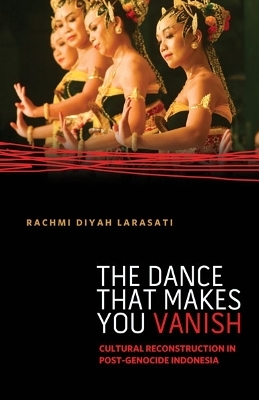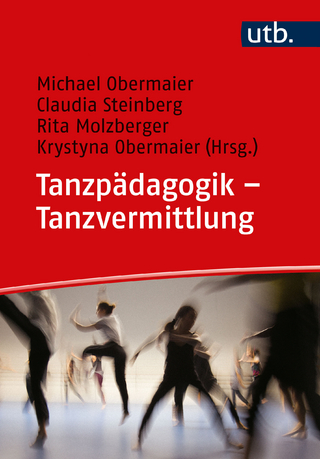
The Dance That Makes You Vanish
University of Minnesota Press (Verlag)
978-0-8166-7994-2 (ISBN)
Indonesian court dance, a purportedly pure and untouched tradition, is famed throughout the world for its sublime calm and stillness. Yet this unyieldingly peaceful surface conceals a time of political repression and mass killing. Between 1965 and 1966, some one million Indonesians—including a large percentage of the country’s musicians, artists, and dancers—were killed, arrested, or disappeared as Suharto established a virtual dictatorship that ruled for the next thirty years.
In The Dance That Makes You Vanish, an examination of the relationship between female dancers and the Indonesian state since 1965, Rachmi Diyah Larasati elucidates the Suharto regime’s dual-edged strategy: persecuting and killing performers perceived as communist or left leaning while simultaneously producing and deploying “replicas”—new bodies trained to standardize and unify the “unruly” movements and voices of those vanished—as idealized representatives of Indonesia’s cultural elegance and composure in bowing to autocratic rule. Analyzing this history, Larasati shows how the Suharto regime’s obsessive attempts to control and harness Indonesian dance for its own political ends have functioned as both smoke screen and smoke signal, inadvertently drawing attention to the site of state violence and criminality by constantly pointing out the “perfection” of the mask that covers it.
Reflecting on her own experiences as an Indonesian national troupe dancer from a family of persecuted female dancers and activists, Larasati brings to life a powerful, multifaceted investigation of the pervasive use of culture as a vehicle for state repression and the global mass-marketing of national identity.
Rachmi Diyah Larasati is assistant professor of cultural theory, critical studies, and dance history in the department of Theatre Arts and Dance at the University of Minnesota. She also holds an affiliate graduate faculty position there in the Department of Gender, Women, and Sexuality Studies and is a former guest faculty at the Brown University Critical Global Humanities Research Institute.
Contents
Acknowledgments
Introduction: Dancing on the Mass Grave
1. To Remember Differently: Paradoxical Statehood and Preserved Value
2. What Is Left: The Fabricated and the Illicit
3. Historicizing Violence: Memory and the Transmission of the Aesthetic
4. Staging Alliances: Cambodia as Cultural Mirror
5.Violence and Mobility: Autoethnography of Coming and Going
Notes
Index
| Reihe/Serie | Difference Incorporated |
|---|---|
| Verlagsort | Minnesota |
| Sprache | englisch |
| Maße | 140 x 216 mm |
| Themenwelt | Sachbuch/Ratgeber ► Sport ► Tanzen / Tanzsport |
| Geisteswissenschaften ► Geschichte ► Regional- / Ländergeschichte | |
| Sozialwissenschaften ► Ethnologie | |
| Sozialwissenschaften ► Soziologie | |
| ISBN-10 | 0-8166-7994-0 / 0816679940 |
| ISBN-13 | 978-0-8166-7994-2 / 9780816679942 |
| Zustand | Neuware |
| Haben Sie eine Frage zum Produkt? |
aus dem Bereich


